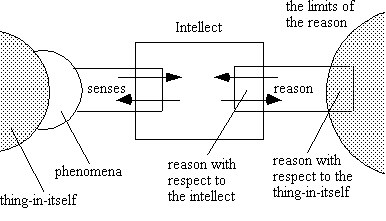Figure 1 outlines Kant's procedure which consistsin choosing an initial
standpoint scaffolding a grand edificewhich in the face of the self-awareness
problem becomes strengthlessfinally. The philosophical experiment employs an
experimentalreasoning, i.e. a method or a procedure, to give safer grounds
to the presumption of an orthoexistence which will be the mainobject of the
following chapters.
2. Let us first see the reason forwhich Kant sought to separate human thought
into Understanding (i.e. intellect) and reason and
then to developthe properties and the problems of these faculties independently.
It is true that Kant mentioned these faculties as a unit but onlyonce:
"... the main root of human knowledge divides intotwo, one of which is
reason. By reason I understand here the higherfaculty of cognition, the
rational being placed in contradictionto the
empirical"14.
The understanding is that part of ourthinking which comprehends
phenomena, makes a synthesis of theexperimental data, builds concepts so as to
generate and comprehendthe experiment, and refers to the things-in-themselves as
theconcept of noumenon. However, this concept has no substance,
because the thing-in-itself cannot be known: "The conceptionof
noumenon is therefore merely a limitative conception,
and therefore only of a negative use. But it is not an arbitraryof fictious
notion, but is connected with the limitation of sensibility,without however
being capable of presenting us with any positivedatum beyond this
sphere"15Kant says.
And later on he adds: "Our understanding attainsin this way a sort of
negative extension. That is to say, it isnot limited by, but rather limits
sensibility by giving the nameof noumena to things, not considered as phenomena,
but as thingsin themselves. But it at the same time prescribes limits to
"itself",for it confesses itself unable to cognize these by means of
thecategories, and hence is compelled to cognate them merely as anunknown
something"16.
But if human thinking gives substance to thenoumena, then there
must be another property of thinkingwhich should have such an effect. This
property is reason,which springs in Kant's first explanatory attempt as
soon as spaceand time are driven away from existence and the thing-in-itself
is instored. It is reason, rather than understanding which workswith the
experiment, hence with phenomena, which seeks to putsomething into
noumena so as to lend them substance andto turn them into
reason-generated Ideas. The thing-in-itselfbecomes apparent in reason
qua Idea, and both Ideaand reason become questionable, and so
subject to criticism, fromthe very outset since the Idea has content
about somethingwhich we cannot cognize. Another consequence is that reason is
increasingly remote from the empiric, and it will only furnishtheoretical
elements. Reason has a limited power to cognize. Thus,when it approaches
existence in full confidence that it can cognizeit and go beyond the limits of
the thing-in-itself, it can stateboth the thesis that "the world is limited
in time and space"and the antithesis that "the world is infinite in
time andspace". Like antinomies, as Kant calls them, provethe
limits of reason and the absurdities that may be reached whenwe think that these
limits can be exceeded. This shows that reasondoes not work with any experimental
material, and this makes itbe so distinct from understanding, which was
recognized by itsproperty to cognize what can be cognized, i.e. the phenomena.
One should now righteously ask whether reasonhas also positive properties to
which one could restrict. Is theproperty of reason to form ideas only a negative
property ? Byits negative properties, reason could break away from the
understanding,but reason is also related to understanding since it seeks to
give substance to the noumena referred to by the understanding
and since it is in a relation of unity with the intellect, whichderives from the
fundamental apperception, from the unity of ourbeing. This is Kant's second
explanatory attempt, in which reasonis treated independently of the intellect but
is neverthelessconnected to it.
This connection, by which reason is orientedto the intellect, rather than to the
things-in-themselves, isresponsible for the positive properties and the role of
reasonin human cognition. In a simplifying scheme, these explanationswould
appear as shown below (Fig. 2).

Fig. 2
This scheme furnishes a figurative interpretationof the way in which Kant had to
build something equivalentin the human mind to reflect the thing-in-itself or,
otherwisestated, to reflect the abstraction of the thing-in-itself forthe
phenomena. Such a reflection were impossible with thesenses and the intellect
alone - the two faculties by which wecan cognize phenomena. A prolongation of
the intellect by reasonwas necessary.
Reason is hence the most abstract, pure, theoreticalpart of human thinking.
It is beyond the intellect, which is inrelation with the empiric, and yet it is
likewise a prolongationof the intellect in terms of its abstracting properties.
The Limit of the Thing-in-Itself13






